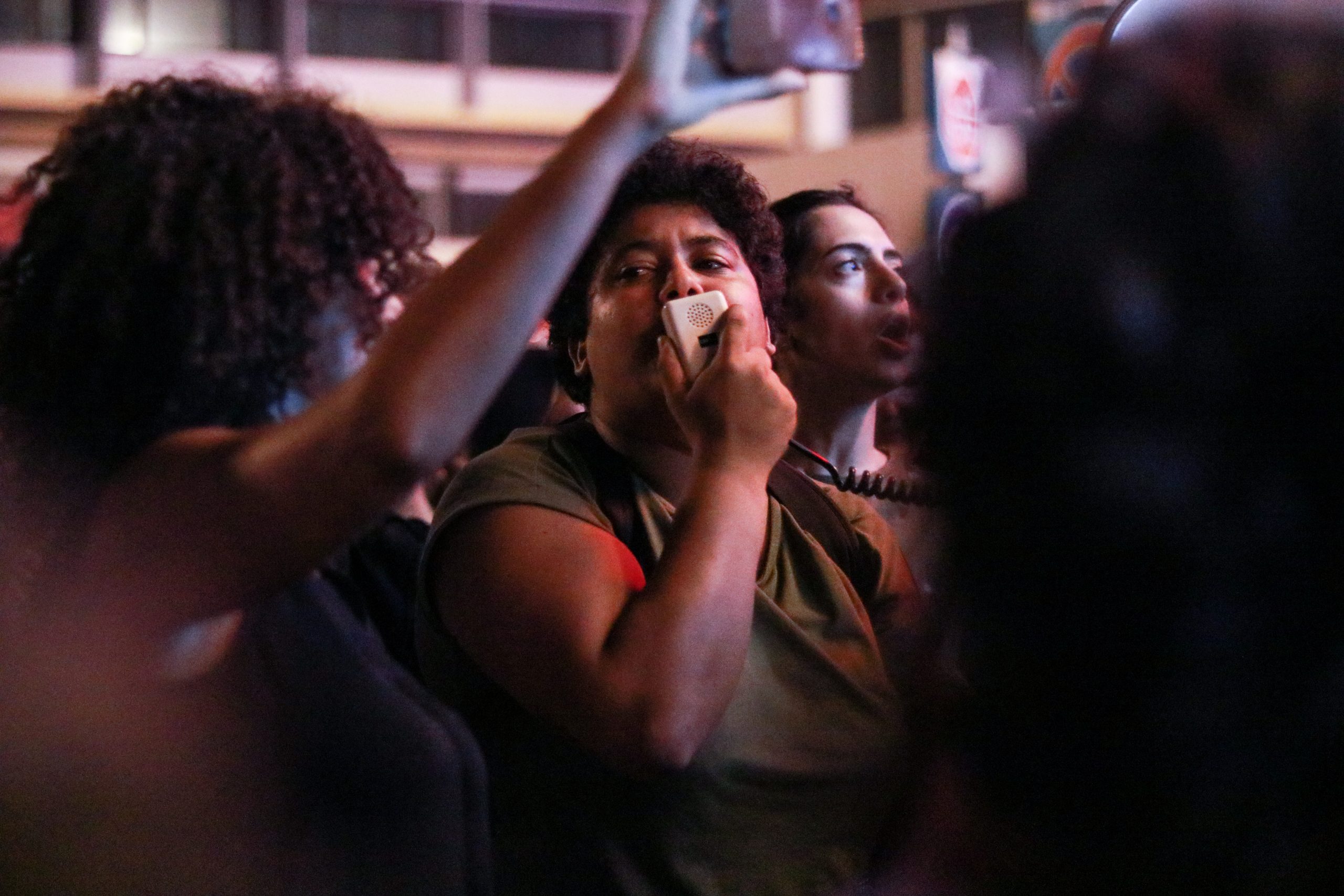Ein Text von: Anika Rosczyk
Gelesen von: Petra Beck
Was ist dein Protestruf?
What is your shout of
protest?
Written by: Anika Rosczyk
Read by: Ralph Williams

Text anhören:
Listen to text:
Wenn ich darüber nachdenke, wo stille Unzufriedenheit aufhört und lauter Protest anfängt, wird mir klar, dass die Grenze dazwischen alles andere als deutlich verläuft.
Jede:r kennt es: das Gefühl der aufkochenden Wut, die von einem Zustand herrührt, an dem wir auf den ersten Blick selbst nichts ändern können.
Erst Momente später erwachen wir aus der Ohnmacht und ärgern uns umso mehr, dass wir nichts gesagt haben – die Worte liegen uns doch plötzlich klar formuliert auf der Zunge!
Wenn wir uns im öffentlichen oder privaten Raum bedrängt fühlen.
Wenn wir mit einem Schweigen den Vorgesetzten bei der Arbeit Recht geben, obwohl deutlich spürbar ist, dass in unserem Unrecht gehandelt wird.
Wenn wir Zeugen der Ausnutzung solcher vermeintlichen Machtstrukturen gegenüber anderen werden und uns nicht für sie einsetzen. Und uns erst danach fragen: Wer legt diese Machtstrukturen eigentlich fest und wieso ergeben wir uns ihnen viel zu oft ohne Protest?
Es scheint eine unnatürliche Blockade zu sein, die uns in diesen Momenten lähmt. Ausgelöst durch die Furcht vor dem, was uns passieren könnte, wenn wir unsere Stimme erheben. Oder vielleicht auch einfach durch die Unsicherheit, etwas zu tun, was nicht von uns erwartet wird.
Wir spüren nur diese Wut und wissen sehr wohl, dass sie berechtigt ist. Leider wird uns in unserer Gesellschaft am laufenden Band das Gefühl gegeben, dass wir unserer Empfindung vielleicht doch falsch liegen, womöglich einfach übertreiben.
Wir sollten diese Furcht, die wir in uns tragen und die uns blockiert, auf der einen Seite akzeptieren und uns nicht dafür schämen.
Unsere Aufgabe sollte es jedoch sein, die Unzufriedenheit ernst zu nehmen und den Mut aufzubringen, über die Hemmung hinauszuwachsen, um unseren Protest laut auszusprechen.
Es ist dabei nicht wichtig, ob wir mit unserer Meinung in dieser Situation alleine dastehen. Im Gegenteil: Genau das ist der Ursprung eines jeden Chores aus Protestrufen.
When I think about where silent dissatisfaction ends and loud protest begins, I realize that the line between them is anything but clear.
Everyone knows it: the feeling of boiling fury that comes from a state where it at first seems like we alone can’t change anything.
Only moments later we wake up from our powerlessness and are even more frustrated that we didn’t do anything at all; as the words were on the tip of our tongues already but have been materialized way too late.
When we feel harassed in a public or private space.
When we agree with our superiors at work by remaining silent, even though it is clearly noticeable that we are being treated with injustice.
When we witness the exploitation of such alleged power structures against others and don’t stand up for them.
And it’s only then the question arises: Who actually determines these power structures and why do we surrender to them far too often without any protest?
There seems to be an unnatural blockade that paralyses us in these moments. Triggered by the fear of what could happen to us if we raised our voice or maybe simply by the insecurity of doing something that is not expected of us.
We only know that we feel this anger and we are damn sure that it is justified. Unfortunately, in our society we are constantly pushed to feel that our sensation is wrong after all and that perhaps it’s simply exaggerated.
We should accept the fear that we carry within us and that blocks us, and should not be ashamed of it.
But our task should be to take the dissatisfaction seriously and to gather the courage to rise above our inhibitions to speak out loud our protest.
It is not important whether we stand alone with our opinion in this situation. Quite the opposite: this can be seen as the origin of every choir of protest shouts.
